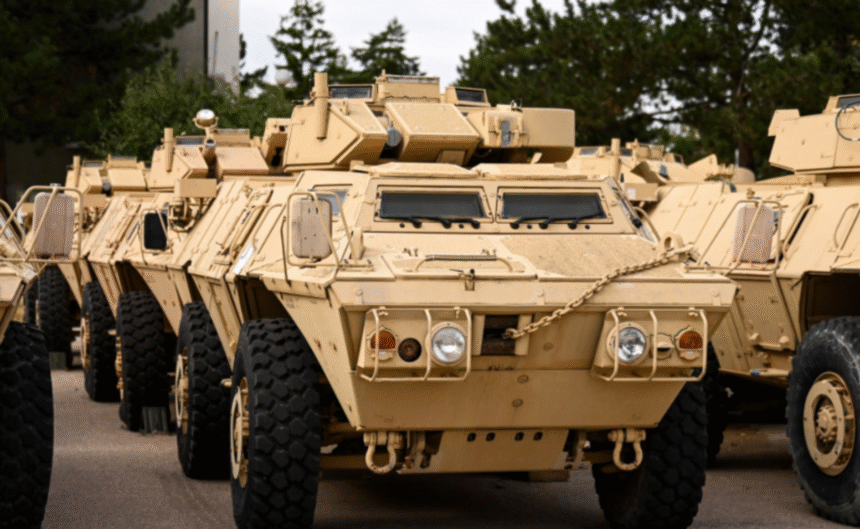The Kosovo Security Force (FSK) is currently undergoing a transformation into a full-fledged army.
This process began in 2018 following the adoption of legal changes and is expected to take ten years.
Kosovo, with a population of 1.5 million, is projected to have over 7,500 active and reserve soldiers, alongside a police force of approximately 9,000 personnel.
The United States has supported the FSK’s transformation from the start, although NATO has not, insisting that the FSK adhere to its original roles, such as crisis response and civil defense.
The Kosovo Ministry of Defense confirmed to Radio Free Europe that “all weapons purchased by Kosovo over the past four years comply with NATO standards. These are primarily weapons purchased from the United States, Turkey, Germany, and other countries.”
Spokesperson Liridona Gashi did not disclose how much was spent on armaments this year but emphasized that the current government has invested “many times more” than previous administrations.
- Recent Equipment Acquisitions:
- In September, FSK received RQ-20 Puma LE drones from the United States.
- In August, FSK was equipped with armored vehicles purchased from the U.S.
- Last year, Kosovo applied to purchase 200 Javelin anti-tank missiles and is currently in the payment process.
- Kosovo also purchased a fleet of Turkish Bayraktar drones in 2023.
- In 2018, 51 Humvee military vehicles arrived from the U.S., purchased through a contract with AM General.
- In 2021, the U.S. donated 55 ASV (Armored Security Vehicles) to Kosovo.
In recent years, Kosovo has increased its defense budget, reaching €207.8 million this year.
FSK personnel regularly train at U.S. and European bases and participate in multinational exercises such as “Defender Europe.”
At the end of last year, Kosovo signed an agreement with Turkey to build its first ammunition factory, expected to be operational “within two years.”
Kosovo, Albania, and Croatia have also announced military cooperation, with a joint activity plan currently being drafted.
The NATO Path and Regional Cooperation:
Kosovo’s path to NATO remains long, as four member states have yet to recognize its sovereignty.
Former Albanian Defense Minister Fatmir Mediu emphasizes the importance of joint military capacities:
“The only way to confront this kind of political aggression from Serbia in cooperation with China and Russia is to build three key elements: NATO military deterrence in the Balkans, political deterrence through joint security analysis, and economic deterrence. These elements are interconnected.”
The defense cooperation initiative between Albania, Kosovo, and Croatia is modeled on the experience of the Baltic states, aiming to advance regional stability.
The signed declaration by the acting Ministers of Defense—Kosovo’s Ejup Maqedonci, Albania’s Pirro Vengu, and Croatia’s Ivan Anushiq—outlines four areas of cooperation:
- Promotion of defensive capabilities and industry collaboration.
- Increased interaction through education, training, and military exercises.
- Response to hybrid threats and resilience building.
- Full support for Euro-Atlantic integration.
Regarding procurement, the goal is to consolidate orders among the three countries to benefit from economies of scale. As Ejup Maqedonci explained:
“For example, for a weapons system we are all interested in buying from the U.S., we will place a single joint order rather than three separate ones. This way, the quantity and delivery schedule will be coordinated, reducing costs and speeding up delivery.”







